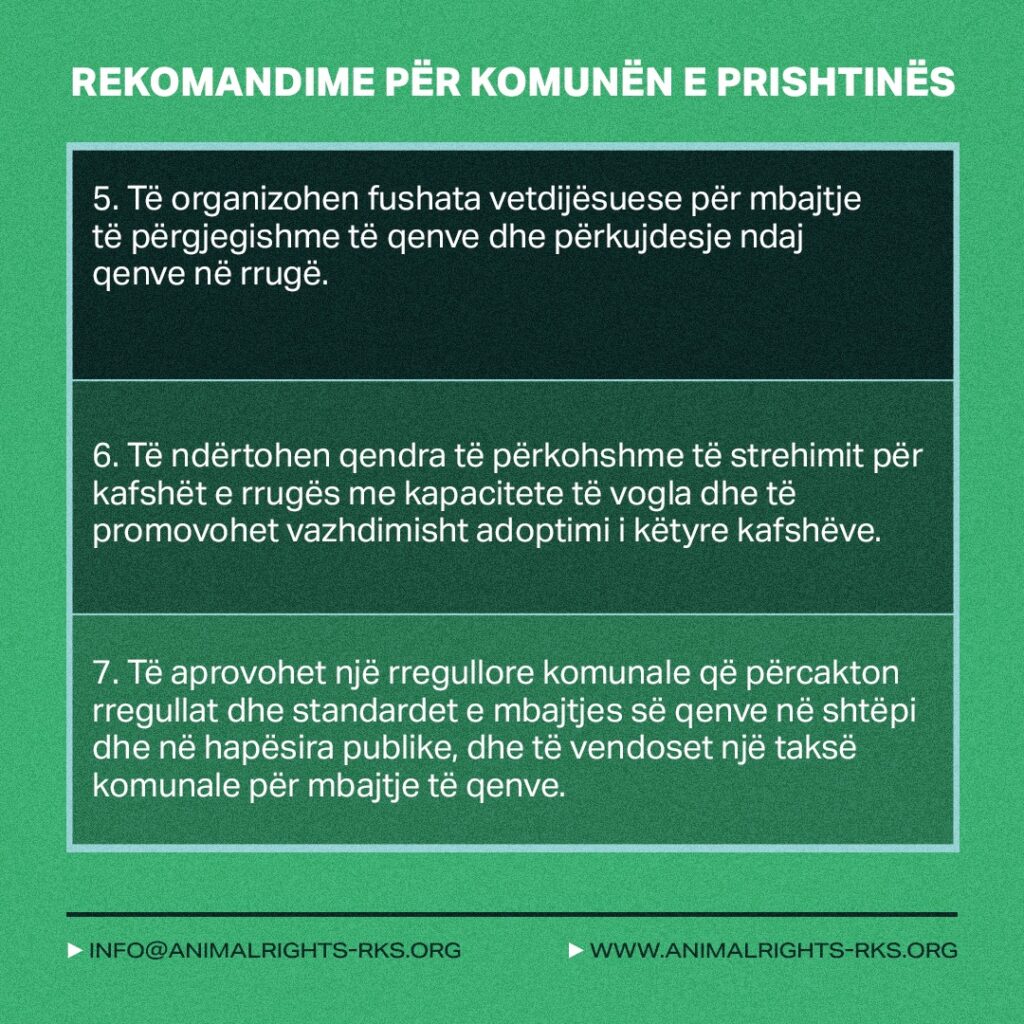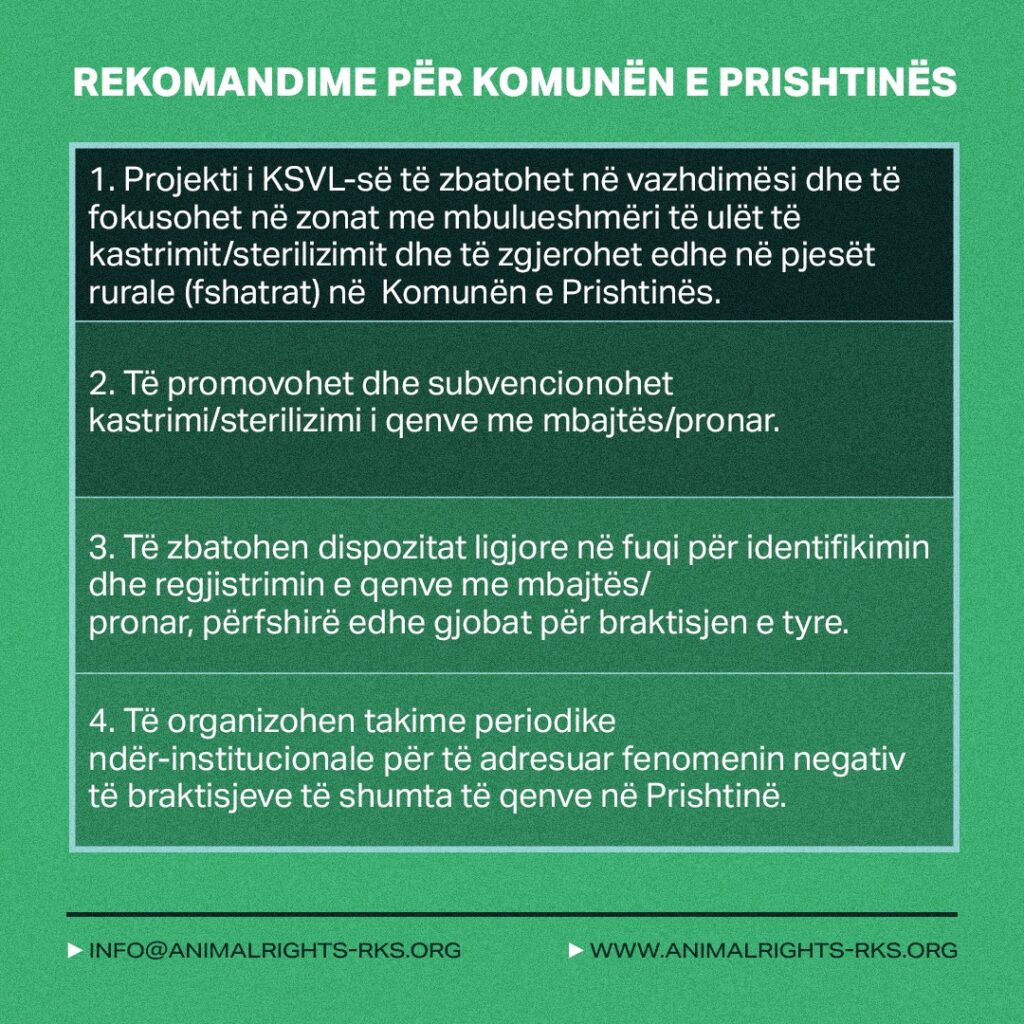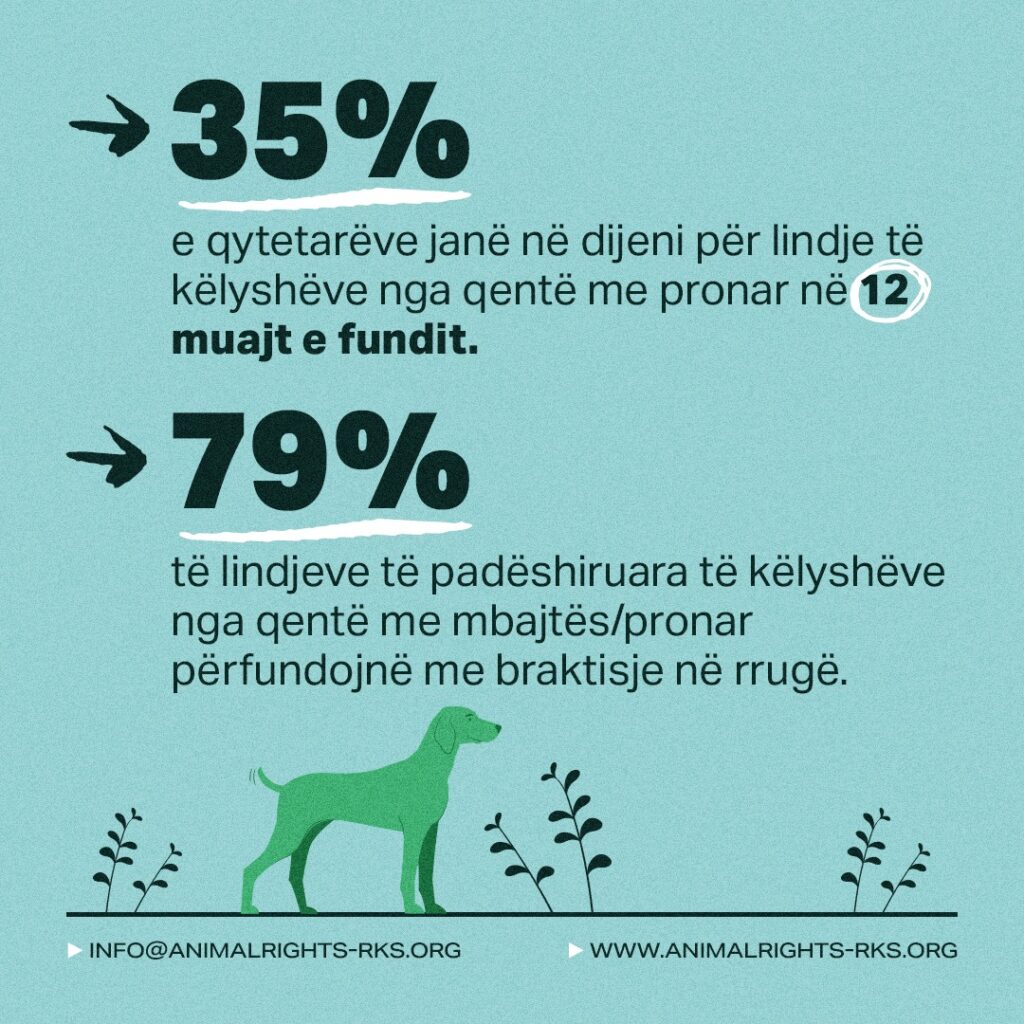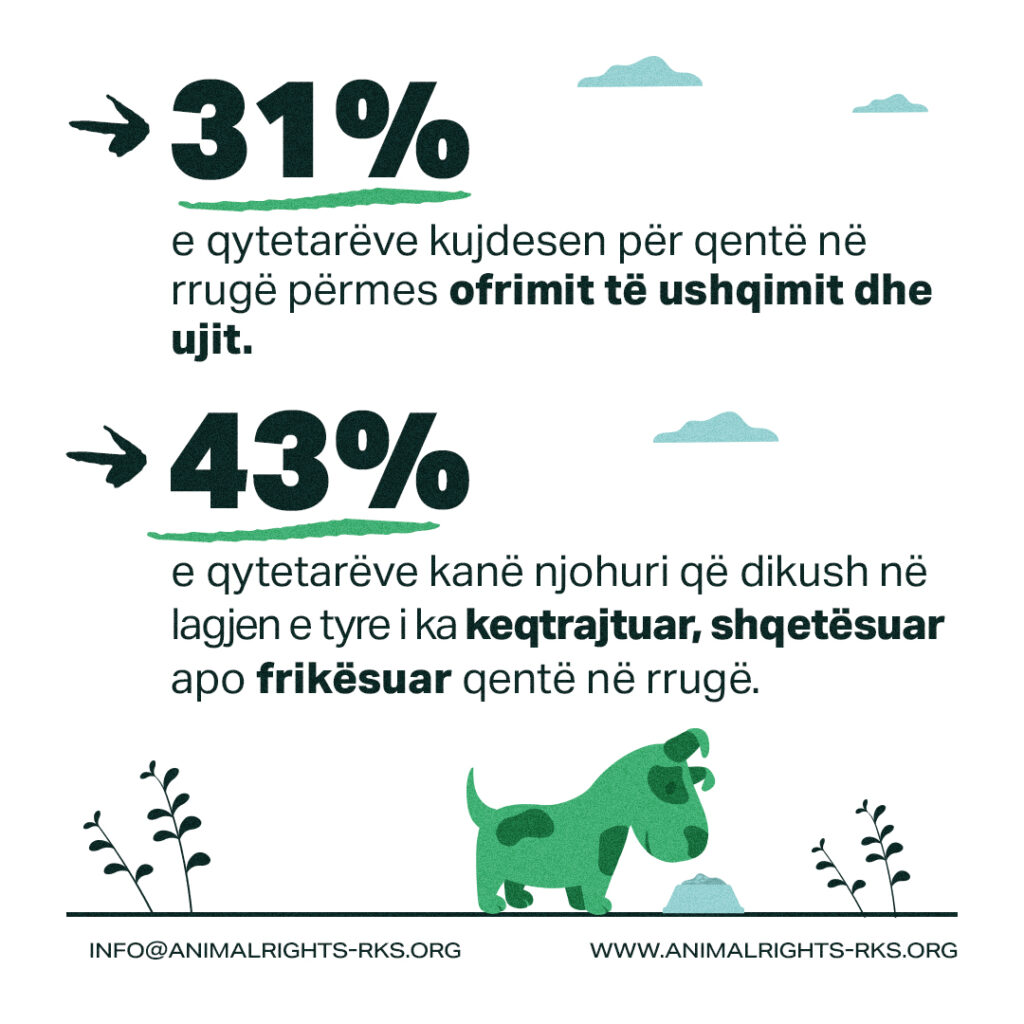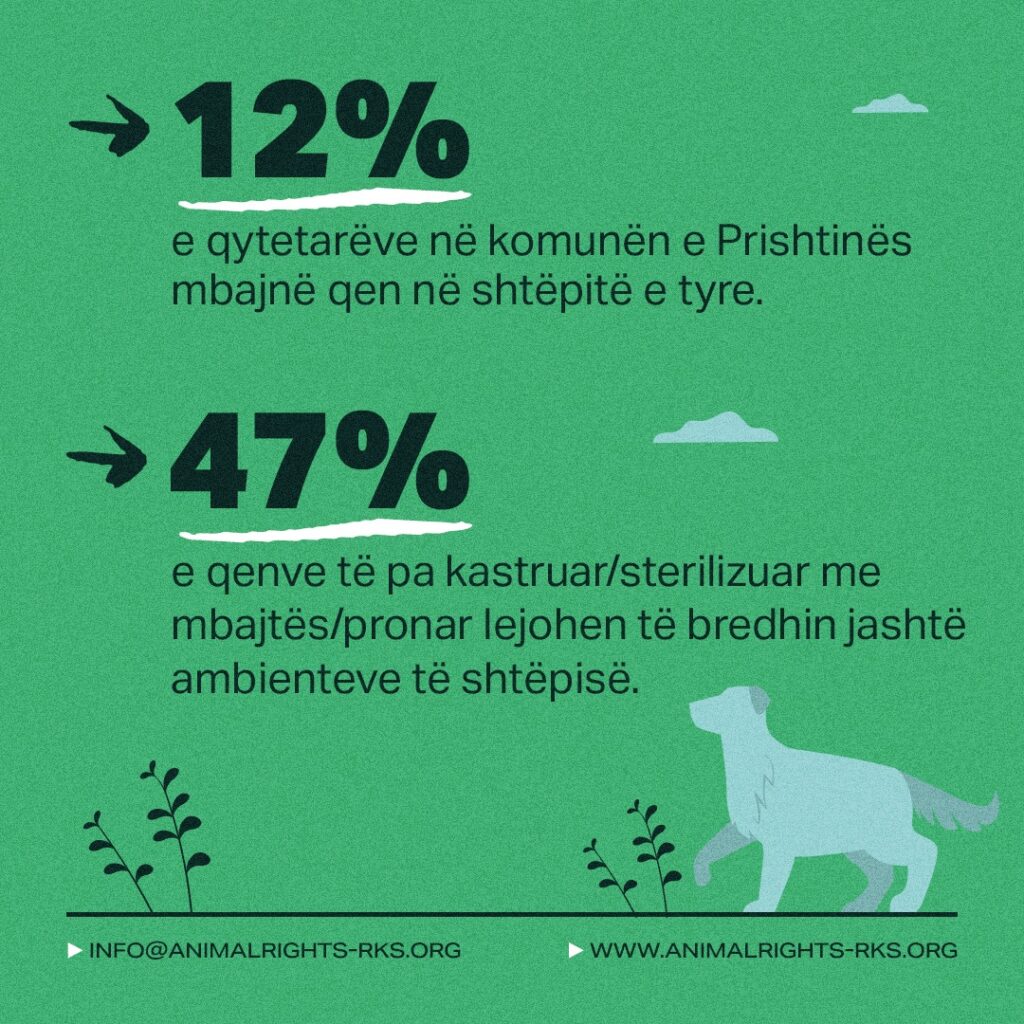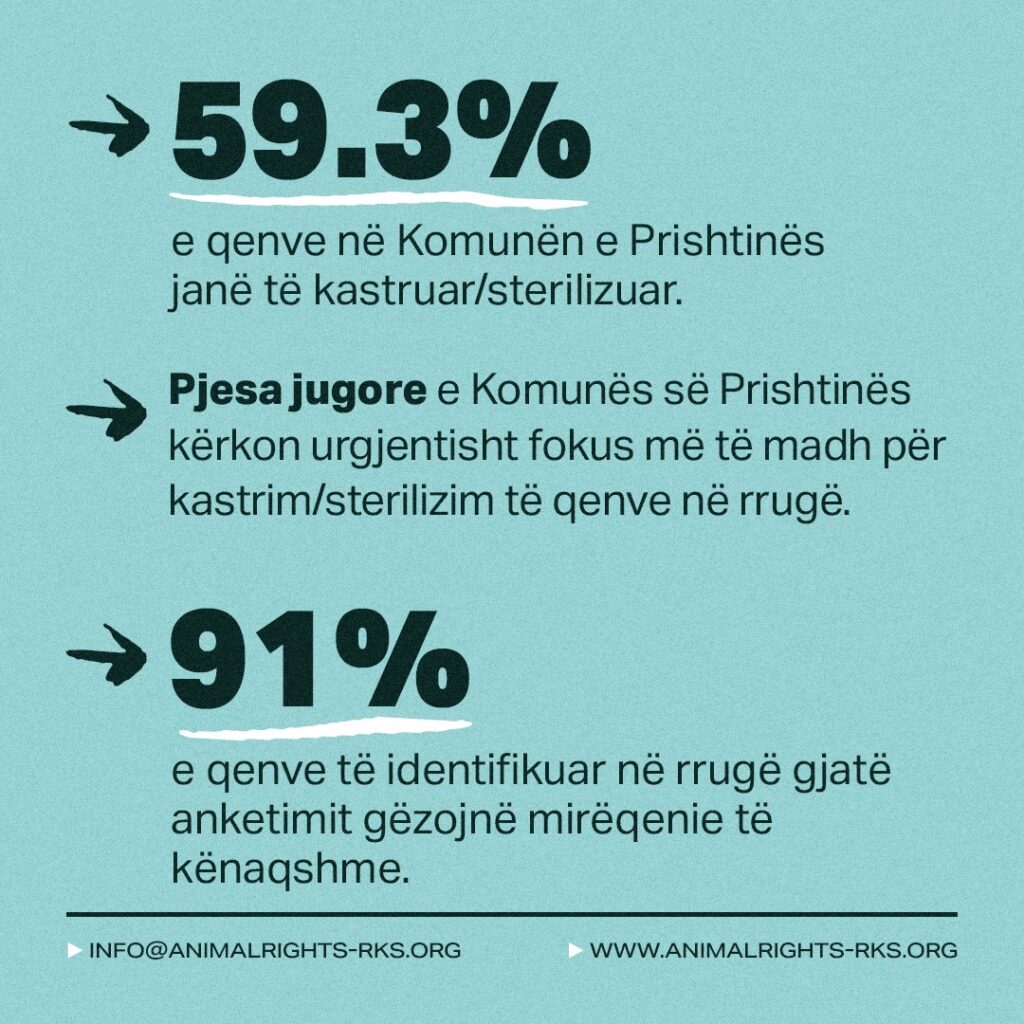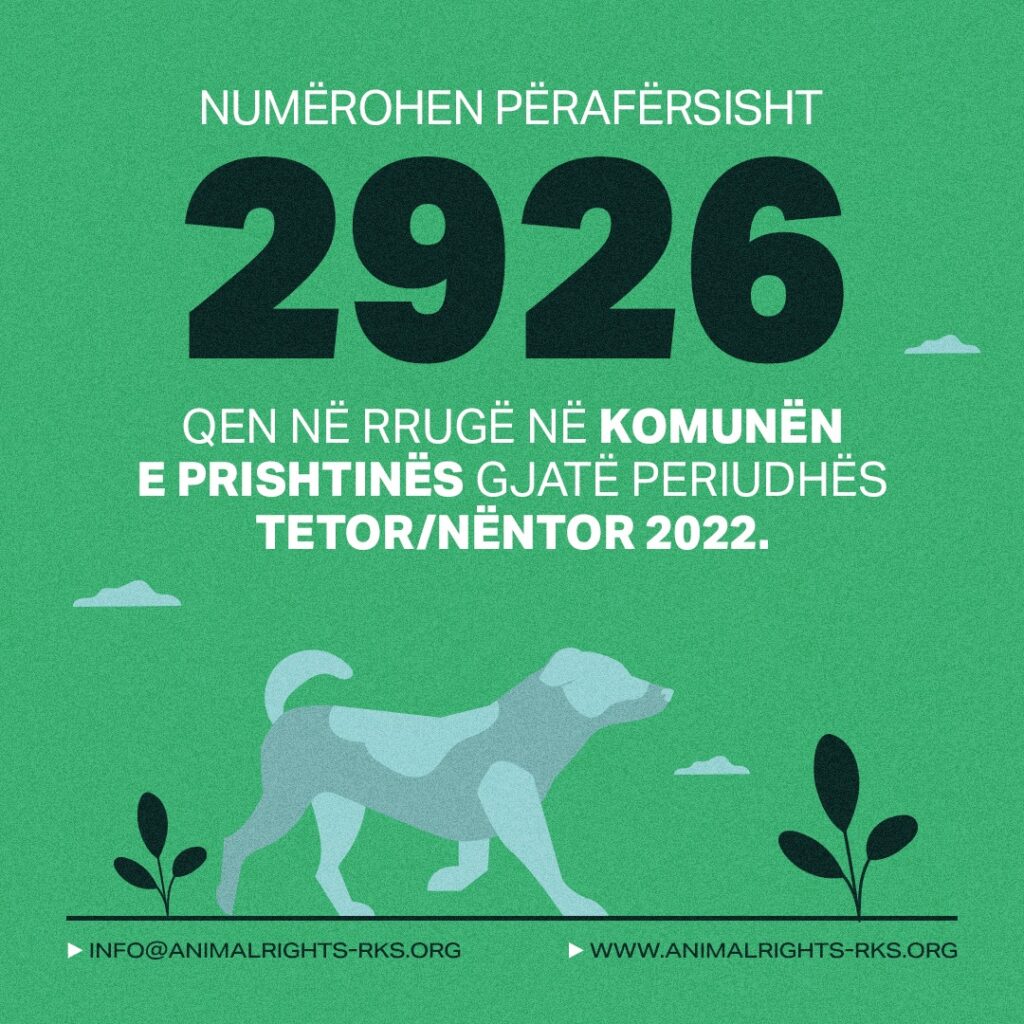Today, we presented the findings of the first activity of this kind in Kosovo to assess the dynamics of the dog population in the municipality of Pristina.
Participants in this presentation were representatives of various institutions mandated for the management and control of the dog population (MAFRD, MLGA, Municipality of Pristina), as well as the Veterinary Chamber and other activists for the protection of stray animals.
The main findings of this project were:
– Almost half (50%) of owned dogs that are not castrated/sterilized are not always confined and this clearly shows that the main source of increase in street dog population is owned dogs.
– The vast majority (79%) of unwanted births of puppies from dogs with owners, end up being abandoned on the street.
– Mistreatment and disturbance of dogs by people is at a worrying level (43%). This poses a danger to both dogs and humans, as abused dogs are more likely to view humans as “enemies” who must be removed from their territory.
– The percentage of castration/sterilization of stray dogs remains at an unsatisfactory level.
– There is a trend of greater focus on the castration of male dogs, while female dogs have less coverage in terms of sterilization.
– Over 80% of dogs in the municipality of Pristina enjoy good welfare, without visible signs of skin diseases and with ideal body weight.
– The small presence of lactating female dogs and puppies shows that currently the abandonment of adult dogs with owners remains the main cause of increasing the number of dogs on the street.
The assessment of the dynamics of the dog population at the local level is a key part of the ‘National Strategy for the Management and Control of Dogs with and without Owners’ and should be implemented in every municipality to understand the real situation with dogs on the streets and to design local DPM programs, based on data from the field.
We thank the participants who took part in the presentation, the “EJA” program of KCSF that believed in this project and supported it, as well as Europe House for allowing the use of their premises to present the findings of this project.
Also, we thank the survey teams for an excellent job in collecting data, as well as the media that were present at this presentation!
Electronic version of the report can be found on the following link (unfortunately we only have the albanian version at the moment: https://bit.ly/3x858bd
* This activity is supported by the Kosovo Foundation for Civil Society (KCSF) program ‘EJA Kosovo’, co-financed by the Swiss Agency for Development and Cooperation (SDC), Sweden and the Government of the Grand Duchy of Luxembourg.
